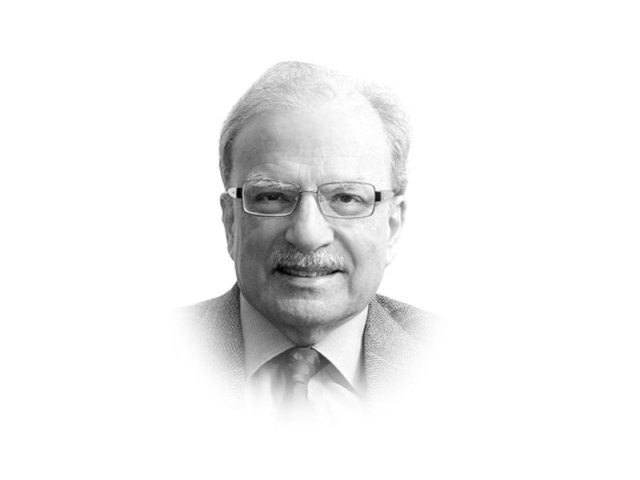Jobs and political stability
Each time Pakistan seems to be set on a rapid growth trajectory, politics has intervened to disrupt the process.

The second consensus concerns the importance of institutions. Without the right kind of institutions in place, alienation on the part of a large number of people can prove to be extremely disruptive. Again, there is plenty of evidence from Pakistan’s history to show that that is indeed the case.
In light of these two propositions what public policy choices should be made by whichever regime that holds the reins of power to ensure that such disruptive activities don’t occur again? I have a number of specific suggestions. The first is to have a clear picture of the labour market which focuses in particular on the aspirations of the young. There are large numbers of disgruntled youth who aspire to the jobs the economy cannot supply in the numbers which they are needed. Most of those who fall in this category are in the middle class — a class that has been expanding rapidly in the country not only because of the past rate of population growth. It has also increased in size because of the enormous amount of foreign capital that has been coming into the country by way of remittances. Money sent from abroad, particularly by the people working in the Middle East, goes to poor households. Thousands of them have been lifted from poverty to lower middle class status. With that transition have come aspirations of the younger members of the families who have benefited from the flow of remittances.
There are several areas of economic activity that should become the focus of attention by the state to help the economy move in this direction. I can think of seven or so activities. They are information technology, communication, education, healthcare, fashion, retail trade and urban transport.
How can the state help in these areas? It should, after proper planning, increase its involvement in providing the needed physical infrastructure, training, market information and credit. Some of the needed investments by the private sector have already been made. It is interesting to note that entrepreneurship in some of the activities that have been successful was provided by women. They have been active in particular in education and the fashion industry.
Some of the successful entrepreneurs in education had children who needed the kind of education that was not available in the existing institutions. Working under the principle that “if it is not available, produce it yourself”, they set up educational institutions in the private sector. Investments were initially made in pre-kindergarten and the primary level. Those who were successful scaled up and expanded. The same happened in the fashion industry but with no scaling up. The state could help to develop these sectors by partnering with the successful institutions in developing required training for teaching and administration. To begin with a chartered university could be set up to fill the skill gaps that are quite significant. The same could be done in the other parts of the services sector where Pakistan has the potential as well as the need to develop.
For providing finance the state could work with the financial institutions to develop their expertise for evaluating the projects in the parts of the services sector in which they don’t have the knowledge. I suggest that the government should sit down with the representatives of the sectors listed above and draw up a plan it would follow, fund and evaluate to increase the number of jobs that would thus become available to the youth.
Published in The Express Tribune, September 1st, 2014.
Like Opinion & Editorial on Facebook, follow @ETOpEd on Twitter to receive all updates on all our daily pieces.













COMMENTS
Comments are moderated and generally will be posted if they are on-topic and not abusive.
For more information, please see our Comments FAQ